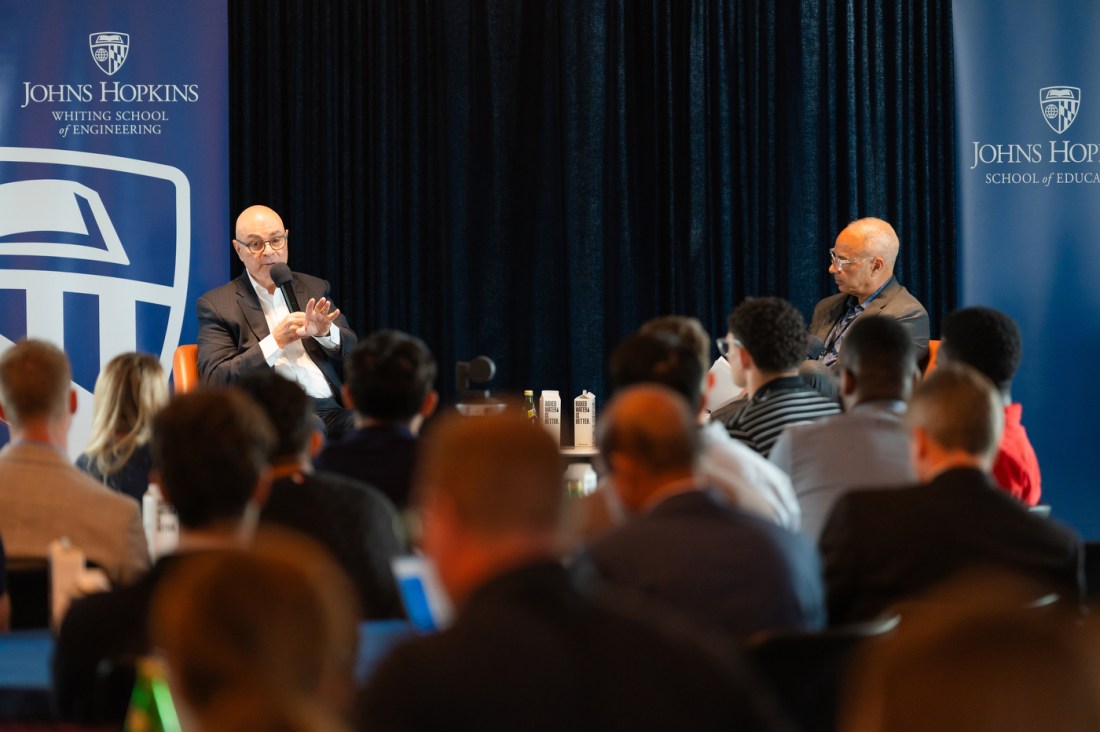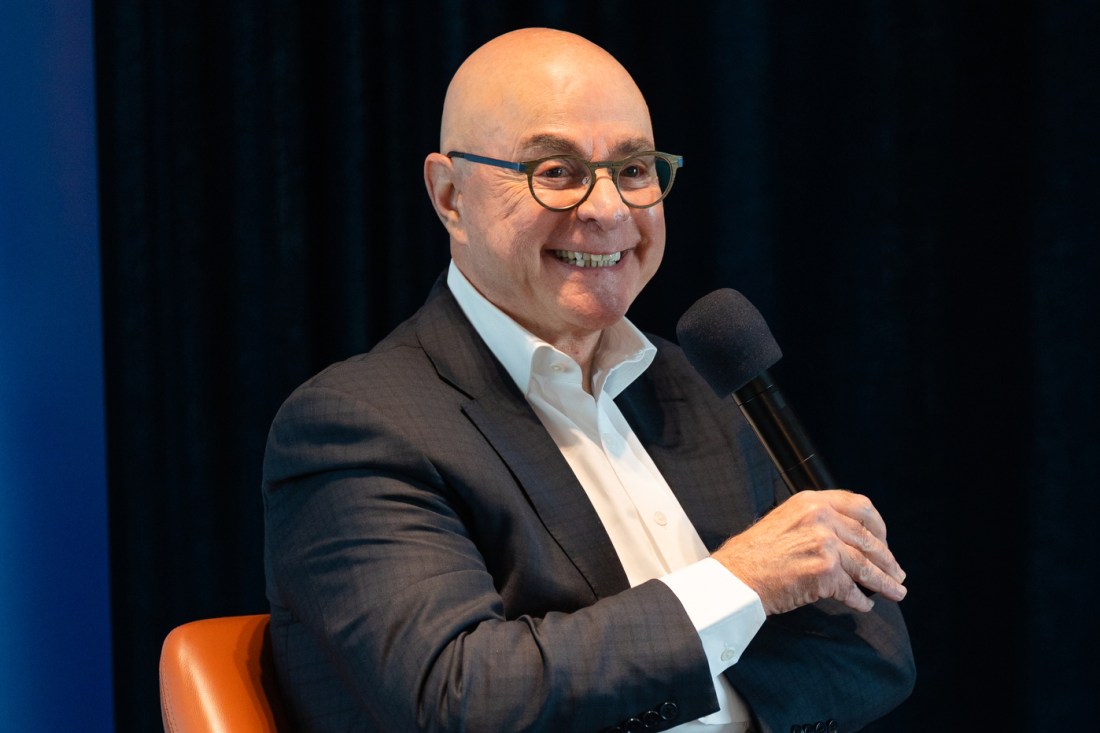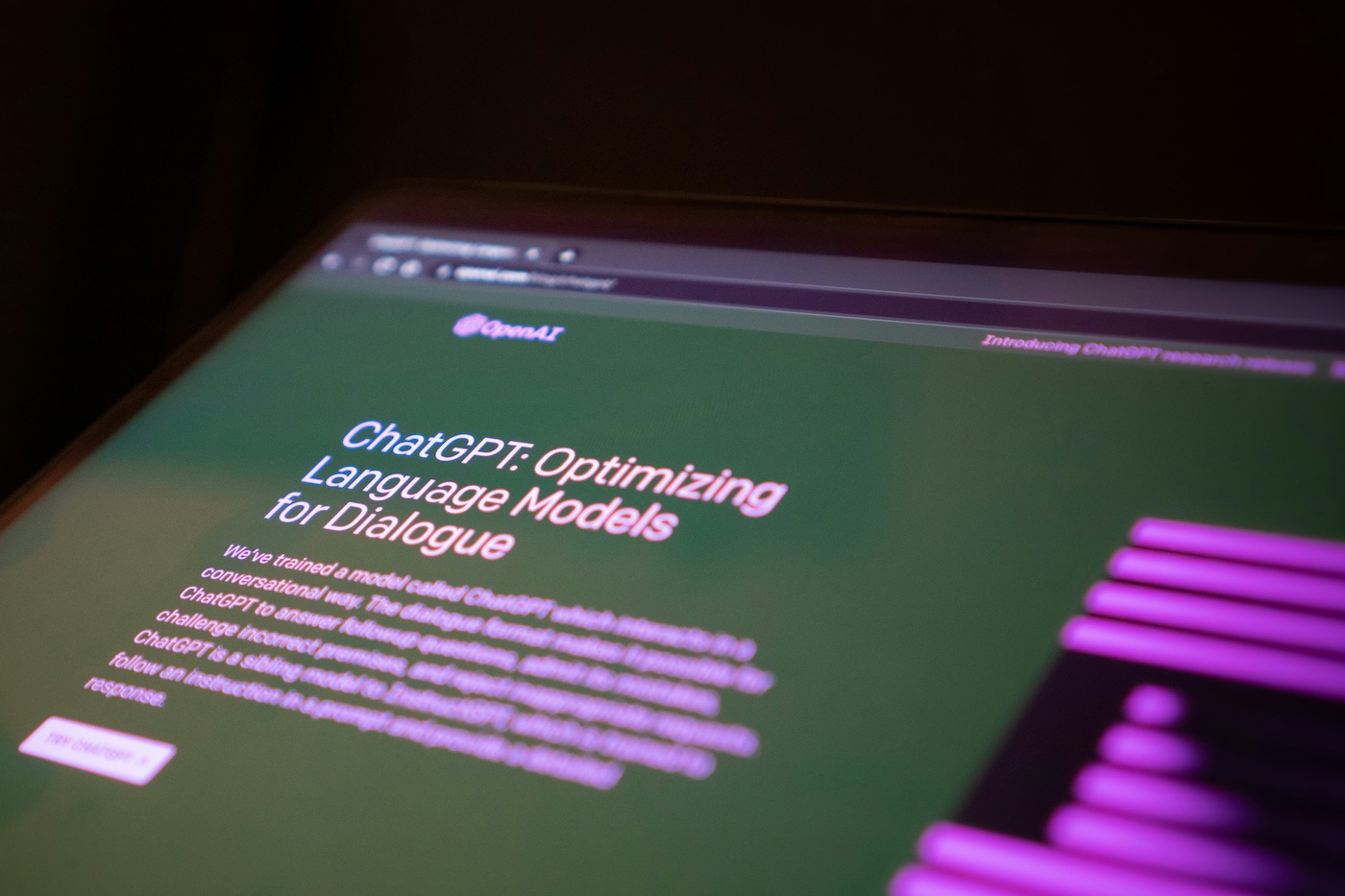
 Northeastern President Joseph E. Aoun said that the university’s dedication to lifelong, experiential learning will help the AI Generation. Photo by Poll Bravo/Johns Hopkins University
Northeastern President Joseph E. Aoun said that the university’s dedication to lifelong, experiential learning will help the AI Generation. Photo by Poll Bravo/Johns Hopkins UniversityGeneration X grew up with analog technology. Millennials entered the digital age. Now a new generation is embracing artificial intelligence.
In a keynote address in Washington, D.C., on Tuesday, Northeastern President Joseph E. Aoun said universities will have to adapt to the “AI Generation” by emphasizing lifelong experiential learning and teaching students about the possibilities — and limitations — of machines.
“Essentially, moving forward, society, universities and institutions will have to provide the balance between agentic AI and human agents,” Aoun told the audience at Johns Hopkins School of Education.
Agentic AI is an artificial intelligence system that can make decisions and take autonomous actions with minimal human intervention.
Providing that balance is “essentially what you can look at as the mission of universities,” Aoun added.
 Aoun was the keynote speaker at the Johns Hopkins School of Education’s AI Synergy Summit. Photo by Poll Bravo/Johns Hopkins University
Aoun was the keynote speaker at the Johns Hopkins School of Education’s AI Synergy Summit. Photo by Poll Bravo/Johns Hopkins UniversityAoun is the author of “Robot-Proof: Higher Education in the Age of Artificial Intelligence.” He was interviewed by Chris Morphew, dean of the School of Education at Johns Hopkins, for a wide-ranging chat at the education school’s AI Synergy Summit, which brought together hundreds of leaders in education, government, industry, policy and research to explore the future of AI-human collaboration.
Aoun began the talk by noting that artificial intelligence continues to grow more powerful, and with the new frontier of agentic AI, the technology could profoundly alter our world and the world of higher education.
But Aoun stressed Northeastern’s embrace of “humanics” as key to navigating this new world.
In his book, Aoun defines humanics as the integration of three literacies: technological, data and human literacy. This approach enables students to transfer knowledge across domains and adapt to diverse challenges, Aoun said.
“AI has an enormous limitation for the time being,” Aoun said. “AI doesn’t understand contexts.”
The humanics approach is further put into practice by emphasizing several of Northeastern’s key strengths, Aoun said.
He cited Northeastern’s experiential learning model through co-ops in 146 countries and the university’s commitment to providing lifelong learning opportunities on campuses in the United States, Canada and the United Kingdom.
He also noted the university’s embrace of over 200 combined majors that “by definition, are bringing disparate disciplines together,” and its embrace of hiring “professors of practice,” or bringing in outside experts to teach students at all levels.
But higher education as a whole risks falling behind in this world.
“In higher education, we are very conservative,” Aoun said. “We want to change the world, but we don’t want to change ourselves.”
So, Aoun advised that higher education should focus not necessarily on consensus but on innovation.
“Every time there is a change, you have early adopters, you have naysayers, and you have the large majority in between,” Aoun said. “What you want is to empower the early adopters. Let them run with it. Let them be the ones who are going to succeed, who are going to fail, and once they succeed, the others are going to follow.”









 English (US) ·
English (US) ·